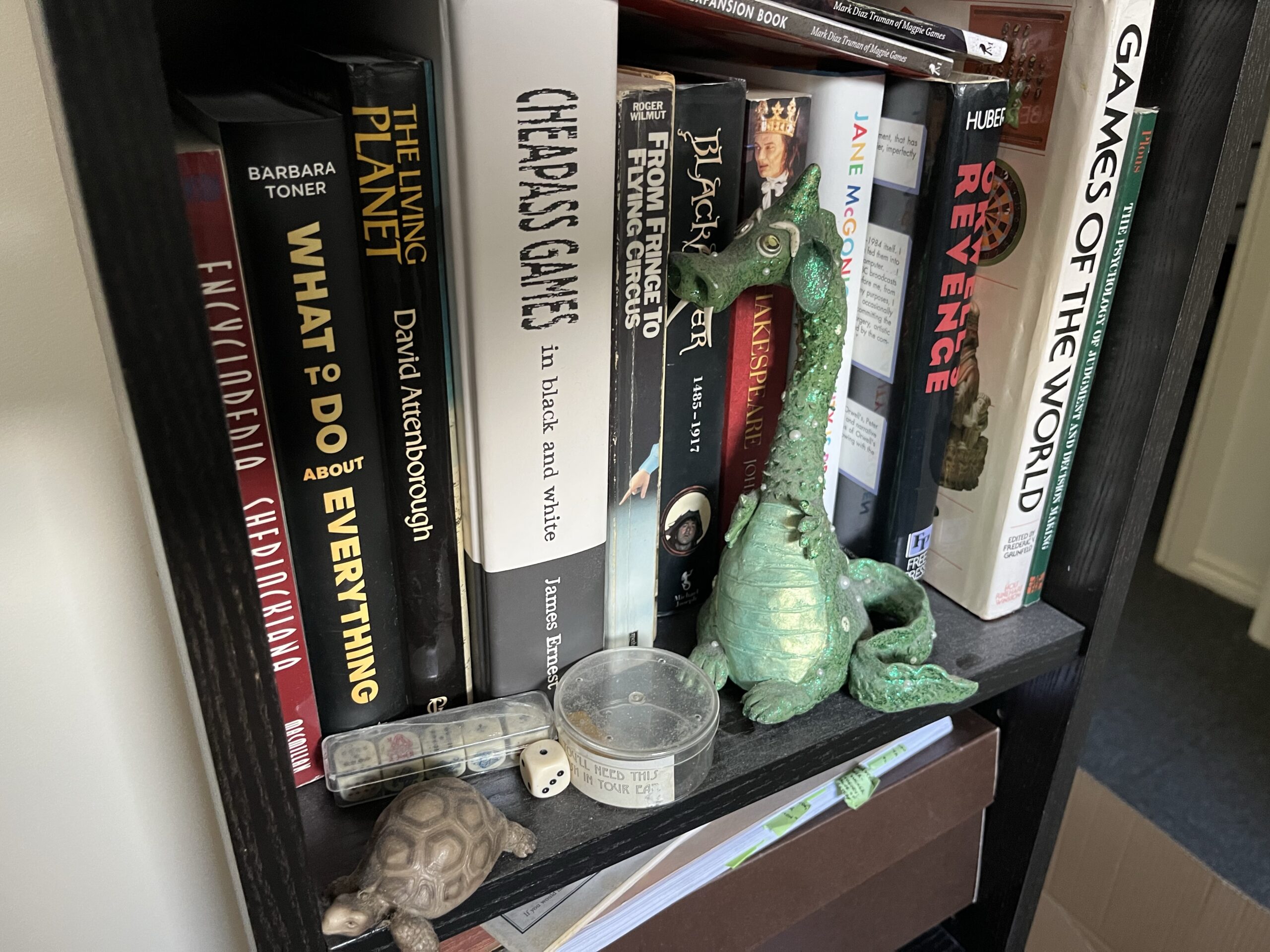#Pratchat89 – An Awfully Teeny Weeny Adventure
Games journalist and PC Gamer editor Jody Macgregor joins Liz and Ben to take control of an oddly Pythonesque Rincewind and discuss the 1995 graphic adventure game Discworld from Teeny Weeny Games and Perfect 10 Productions.
A nefarious secret society has summoned a dragon in Ankh-Morpork! It’s a suspiciously familiar plot, and of course the only one who can save the city is…Rincewind? This wizard might not know any spells, but he’s decidedly snarky and cunning – and accompanied by an inventory window on legs. Together, they’ll use petty theft, time travel and logic that would put Rube Goldberg to shame to rid the city of this scaly threat forever…twice!
Terry Pratchett was famously an early adopter of computers, and a devoted video game player, so its no surprise that there were other Discworld videogames before…er…Discworld. But this 1995 point-and-click graphic adventure game is by far the most well known and beloved of the lot – despite also being infamous for its difficulty, in a genre known for obscure puzzles with illogical solutions! The player controls a version of Rincewind voiced by Eric Idle, who must travel back and forth all over Ankh-Morpork (and to the edge of the Disc) to collect a variety of random objects to save the city. The plot is loosely based on Guards! Guards!, with some flavour from Moving Pictures and a cast drawn from the early wizards novels. It was followed by two more games from the same team: Discworld II: Missing, Presumed…?!, and Discworld Noir, each with quite different visual styles, and the latter with a brand new protagonist. Sadly, all three are “abandonware” – not only unavailable, but languishing in copyright limbo, with no-one sure enough who currently has the rights to get them published again.
Have you had a chance to play Discworld? What do you think of this version of Rincewind, Ankh-Morpork and the Disc? Would you like to hear us do episodes about the two other adventure games? And what other adventure games would you recommend for folks looking for a similar vibe? What other kinds of Discworld videogame would you like to see? Click on Pratchat and choose the question mark icon to join our online conversation, using the hashtag #Pratchat89.
Podcast: Play in new window | Download (Duration: 2:12:48 — 61.2MB)
Guest Jody Macgregor (he/him) is a journalist who started out writing about music, but now writes mostly about videogames. He’s been writing for PC Gamer for about a decade, and is currently the magazine’s weekend and Australian editor. You can find out more about him, and read his most recent reviews and articles, by looking up his profile at pcgamer.com.
You can find episode notes and errata on our web site.
Next month we’re catching a train – the Ankh-Morpork Scenic Railway, that is – as we read Terry Pratchett’s penultimate Discworld novel, Raising Steam! Send us your questions via email (chat@pratchatpodcast.com), or get on board via your local social media platform using the hashtag #Pratchat90.
Want to help us get to the end of our six(ish) year mission and read every Pratchett book – and more? You can support us with a tip, or a subscription for as little as $2 a month, and that’s cuttin’ our own throats! See our Support Us page for details.



